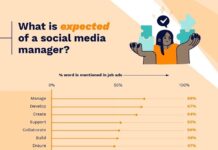Hashtags are the Twitter ‘community creation’ that enable users to group tweets by topic, and one or more hashtags often appear as a trending topic on Twitter. The presence of advertisers on Twitter has grown significantly since the introduction of Promoted Tweets in April 2010, and now a few brands are taking it a step further: using the organically trending topics and hashtags as a vehicle for their Promoted Tweets.
Last week, as #alliwant was organically trending, several brands harnessed the power of this trending phrase to engage more users with their paid marketing messages, including Pillsbury, Coca Cola, and Greater Than AIDS (an anti-AIDS initiative). ClickZ News reports that this latest method “represents the rapid evolution and sophistication of brands as they experiment with paid Twitter opportunities,” and it comes with its own set of benefits and risks for the advertiser.
Jeanette Tinsley, interactive marketing manager for General Mills, told ClickZ News in an email “We look at trending hashtags every day and determine which ones would be relevant to our product, our strategy and to consumers.” Once a trending topic is chosen, they find the right content from Pillsbury that fits the topic; generally recipes, tips, or a specific product.
“#lemmeguess You’re craving something sweet! Satisfy your afternoon sweet tooth with chocolatey Sweet Moments!” was one recent example, which linked to a Pillsbury.com page featuring descriptions of Sweet Moments goodies. Adding another spin to its Twitter marketing efforts, Pillsbury has also tried releasing certain tweets at key times of day, such as releasing a coupon for Sweet Moments treats during mid-afternoon, when people might be craving a sweet “pick-me-up”.
Exactly how effective are Promoted Tweets, especially in combination with trending hashtags, as advertisement opportunity for your brand? These numbers aren’t available yet: according to a recent TWTRCON/oneforty.com poll on Twitter’s Promoted Products, “about half of business users want to see more metrics to understand the potential ROI of Promoted Tweets, Trends or Accounts.” So while the ROI jury is out, the recent examples of major brands using trending phrases to further their marketing messages do show several benefits, as well as associated risks.
Benefits of using organically trending hashtags with Promoted Tweets include:
- the sponsored tweets appear in rotation at the top of #alliwant search results pages, increasing their visibility on Twitter since the topic is already trending
- it doesn’t cost anything! Advertisers running Promoted Tweets face no additional charge for using a trending hashtag in their Tweets
- using trending phrases may help to engage more users (and certainly increases visibility of a Promoted Tweet)
- allows brands to tap into “the real-time Twitter zeitgeist,” which originates from its everyday users and not from the brands themselves
But there are certain risks by placing paid tweets in the midst of everyday user-generated topics:
- the hashtag must be relevant to the advertising message: advertisers don’t want to ‘spam’ their followers with tons of Promoted Tweets
- the Promoted Tweet may run next to user-generated content that may be inappropriate or controversial (including lewd, racist, or profanity-filled tweets)
When asked by ClickZ News about the risks of having promoted tweets run alongside inappropriate user-generated content, Tinsley replied “This is the nature of Twitter. It would be unrealistic to expect to control other people’s Tweets and how/when they appear. We are consistent with how we manage our own tone and voice, and we feel with that consistency users will recognize who we are and be able to differentiate us from the rest of the stream.”


